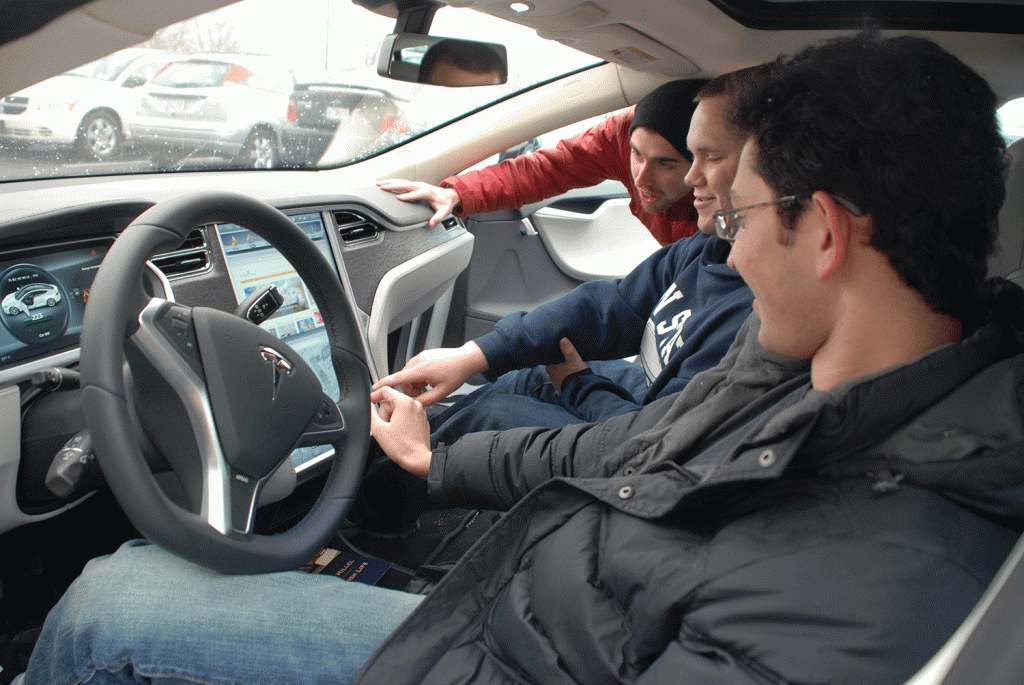Networking: Green vehicle sustainability lives at Penn State

The world is one expansive network. Reminders of this occur all the time.
Last month, Elliott Weinstein was at Penn State for a meeting of Penn State Hillel, of which he’s currently the board chair. Weinstein had just purchased a Tesla S, one of the highest powered and lowest consuming vehicles available. Within a short time of being at University Park, a couple of engineering students spotted the car on College Avenue, engaged its owner in conversation and told him about upcoming sustainability events at Penn State.
As a driver who was experiencing “sustainability” up close and personal on a daily basis, Weinstein surfed and discovered the Sustainability Institute at Penn State, as well as, David Riley, assistant professor of architectural engineering, and Joel Anstrom. Anstrom is director of the Larson Institute’s Hybrid and Hydrogen Vehicle Research Laboratory at Penn State and coordinator of the 21st Century Automotive Challenge, an annual green-vehicles competition that occurs in May at University Park.

Three students at Tesla dashboard, from left to right: Harshad Kunte, Jim Kreibick, Benjamin Sattler
So this explains why one recent afternoon, Anstrom, three engineering students and a staff member with a camera were – with the owner’s full permission – joyriding in the Tesla while Weinstein was in a meeting. The sleek machine is practically noiseless already, so when it passes other vehicles like they’re standing still and without a sound, it’s enough to make even the most composed engineering student giggle with glee.
“Wow!” said the students. Wow indeed. It’s impressive, what applied engineering can accomplish.
The students are currently volunteering time to work on the Larson Institute’s EV-1, a pioneer machine in the green vehicle movement. They are James Kreibick (electrical engineering), Harshad Kunte (masters student, mechanical engineering), and Benjamin Sattler (mechanical engineering and engineering science).
Weinstein received his B.S. in marketing in 1973 and M.S. in accounting in 1974 from Penn State. He is president of Weinstein Realty Advisors, based in York, Pa.
“We’ve gotta improve the world,” said Weinstein of the Tesla’s advanced technology that produces virtually no pollution and doesn’t send petrodollars abroad.

Foursome with Tesla, front view, from left to right: Jim Kreibick, Harshad Kunte, Dr. Joel Anstrom,
Benjamin Sattler
The 21st Century Automotive Challenge will draw together a range of vehicle types and advanced technologies, with a public display event on May 19 at the MorningStar Solar Home, on Penn State’s University Park campus.
For more information about the automotive challenge, visit http://www.larson.psu.edu/21st%20CAC.
To learn about student education opportunities at the Larson Institute, visit www.larson.psu.edu. For
information about student education opportunities at the Sustainability Institute, visit www.cfs.psu.edu.
CREDIT: Mike Casper

Follow Us!